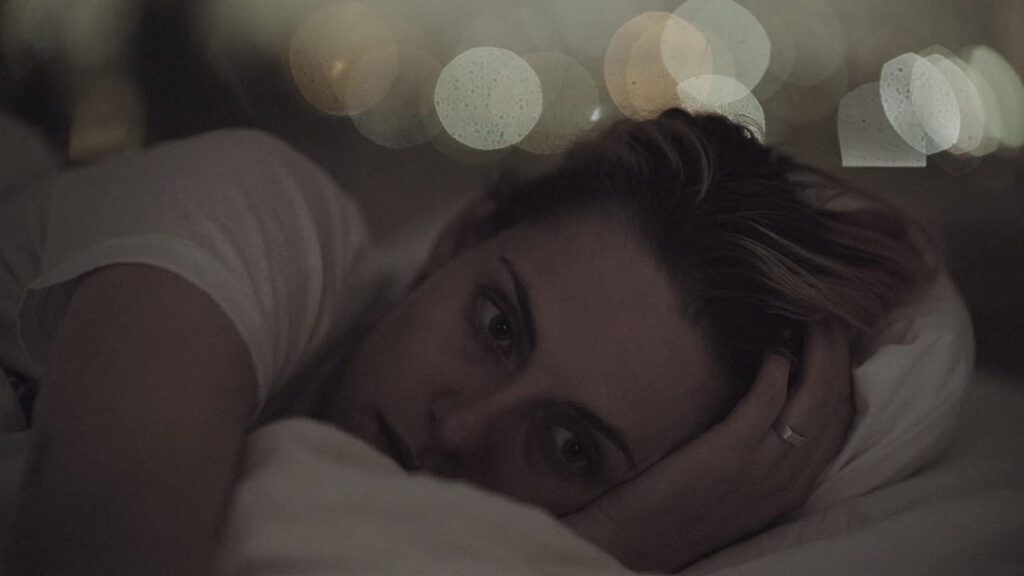“Art is just a way to force a new perspective on something familiar.” That’s a line from the final episode of Netflix’s “Homemade,” a series consisting of 17 short films from acclaimed filmmakers, all produced during quarantine in the spring of 2020. These internationally curated perspectives are mostly about one thing that remains new to all of us: life in quarantine during a pandemic.
You can watch these films in any order (so says Netflix), but the two that bookend the series have a commonality that is hard to miss. Both take aerial views of desolate cities under lockdown. Ladj Ly’s intro film takes shots from a teenager’s drone as he scans the streets around him, some empty, some filled with lines of people wearing masks. Ana Lily Amirpour’s film “Ride It Out” has a similar cinematic perspective as it follows a woman on her bike ride through Los Angeles (Cate Blanchett narrates). Between these two projects are 15 shorts that zoom in on familial life, personal struggles, and quirky time-killing endeavors, all averaging out to about seven to eight minutes each.
Many common threads are hard to miss here, which is inevitable given the project’s limitations. Many filmmakers employ their children to be themselves. And many take a documentary route about the experience of being shut in. My personal favorites are the films that go outside the parameters and find a way to tell a story that has little to do with the pandemic.

Pablo Larrain’s “Last Call” is, thankfully, the only Zoom-based film (I guess “SNL” cornered the market on those), featuring an elderly man trying to get in touch with “the one that got away.” I wouldn’t dream of revealing this film’s punchline, but it certainly contains the biggest laugh of the bunch. Maggie Gyllenhaal’s effective and bittersweet sci-fi tale, “Penelope,” features a widowed farmer (Peter Sarsgaard, Gyllenhaal’s husband) coping with new gravitational forces, the result of a different kind of pandemic altogether. Director Antonio Campos takes a psychological horror approach in the creepy “Annex,” in which a family finds a mysterious, unconscious man on the beach, takes him home and tries to get the authorities to come out, which they never do.
My favorite pandemic-specific films are the aforementioned “Ride It Out,” as well as Naomi Kawase’s “No Border,” the least linear film of the bunch, and a beautiful meditation on isolation and the new global reality within. I also loved Johnny Ma’s letter to his estranged mother, who never accepted his new family and who knows “you’ll never see this because you don’t have Netflix.” It’s the only film I can think of that ends with a recipe for everyone to try at home. It pairs nicely with Rachel Morrison’s “The Lucky Ones,” which is a letter to her five-year-old about what is worth remembering from this particular time.
There are a lot of wonderful films in the bunch, and a few forgettable ones. Some have complained that the whole endeavor reeks of privilege, a point Sebastian Leilo’s sly musical contribution “Algorhythm” points out as his character sings about the reviews this film will eventually get (they were right).
But do the shorts work in and of themselves? I would have no problem programming some of these for a festival. Would Kristen Stewart’s directorial and performance piece “Crickets,” about an insomniac, work as a film if removed from the umbrella of the pandemic? Hard to say, but it’s an effective work that smartly remains in mostly close-ups as her character repeats to whomever might be listening, “I just need a break.” Don’t we all. (Also, I love what she wrote for the credits).
If Netflix commissions a second season of “Homemade,” they could do well by further expanding the worldview. Among other topics to cover: Online learning, the stress of unemployment, home-based quarantine while having symptoms, doctors and nurses coming home after a shift. We definitely have a surplus of filmmakers’ home movies starring their kids. It’s time to move on. There are so many more places to go with this to get even newer perspectives.
Covid Cinema will likely become a subgenre with many different flavors, and “Homemade” could represent a sampling of what’s to come. (I’m sure the horror genre alone will be filled with countless parables and allegories.) It’ll be even more interesting years from now, or whenever we get some distance from COVID-19, to look at most of these shorts as a document of what life became for many of us.












